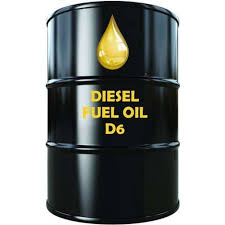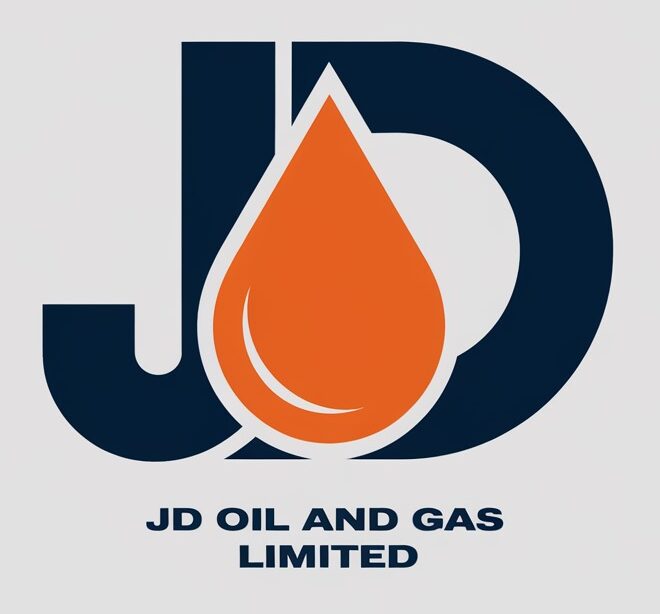Virgin Fuel Oil D6
Virgin Fuel Oil D6: High-Energy, Residual Fuel for Industrial and Marine Applications
Virgin Fuel Oil D6, commonly known as Bunker Fuel or Residual Fuel Oil, is a heavy and viscous fuel primarily used in power generation plants and large marine vessels. It is one of the least refined fuel oils, meaning it retains a significant amount of the original crude oil composition. D6 is classified as a residual fuel because it is left over after lighter fuels, such as gasoline and diesel, have been extracted from crude oil during the refining process.


What is Virgin Fuel Oil D6?
Virgin Fuel Oil D6 is a heavy-grade fuel oil that is dense, dark, and has a high sulfur content. It is predominantly used as a marine fuel for ships and industrial fuel for power plants due to its high energy density. D6 is classified as a Category 6 fuel oil, meaning it is thicker and more viscous than lighter distillates like D2 Diesel or Jet Fuel.
Due to its low level of refinement, D6 fuel is less expensive than lighter fuel types but requires preheating to be pumped and combusted. It is highly valued in industries that require large volumes of fuel for continuous power generation, particularly in locations where cost efficiency is crucial, such as in industrial sectors and large-scale power plants.
Key Characteristics of D6 Fuel Oil
High Viscosity: D6 fuel is thicker and more viscous compared to other fuels like diesel or gasoline, requiring specialized handling equipment and preheating to flow and combust efficiently.
High Energy Density: It offers a high energy output per volume, making it ideal for large-scale industrial applications where significant energy is required, such as in shipping and power generation.
Residual Nature: D6 is a residual fuel oil, which means it is what remains after lighter hydrocarbons are distilled from crude oil during the refining process. This makes it denser and more carbon-rich than distillates like diesel.
Sulfur Content: Traditional D6 fuel can contain high levels of sulfur, which can contribute to sulfur dioxide emissions when burned. Some regulations, particularly in the marine industry, mandate the use of low-sulfur versions of D6, known as LSFO (Low Sulfur Fuel Oil).
Cost-Effective: D6 fuel is more affordable than distillates due to its lower level of refinement, making it a popular choice for large industrial users who need high energy output at a lower cost.
Applications of Virgin Fuel Oil D6
D6 fuel oil is widely used in industries where high energy output is required, and the cost of fuel is a major concern. The most common applications include:
Marine Shipping: D6 is a primary fuel for large ocean-going vessels, including cargo ships, tankers, and bulk carriers. Due to its high viscosity, it must be heated to flow through ship engines, but it provides an economical fuel solution for long-haul voyages.
Power Generation: D6 is commonly used in industrial power plants, particularly in regions where natural gas is less available or costlier. It is burned in large boilers to produce steam, which in turn generates electricity for large industrial facilities or entire regions.
Industrial Boilers: Many large manufacturing plants use D6 fuel in industrial boilers to produce heat for processes like metal smelting, cement production, or refining operations.
Heating: In colder regions or in large industrial settings, D6 fuel can be used as a heating oil to warm large facilities or buildings, although its use is less common in residential settings due to its heavy nature.
Benefits of D6 Fuel Oil
Cost-Effective Energy Source: Virgin Fuel Oil D6 is one of the least expensive types of fuel available, making it highly attractive for large-scale users who need a cost-effective energy source for continuous operation.
High Energy Output: With its high energy density, D6 fuel is capable of delivering a significant amount of energy per gallon, ensuring efficient fuel usage for heavy-duty applications like shipping and power generation.
Abundant Availability: As a byproduct of the refining process, D6 fuel is readily available worldwide, providing a reliable fuel source for industries in need of continuous energy supplies.
Versatility: D6 fuel oil is versatile in its applications, from marine engines and power plants to industrial processes, making it an essential fuel for multiple sectors.
Challenges in Using D6 Fuel Oil
Environmental Concerns: D6 fuel oil contains high levels of sulfur, leading to sulfur dioxide emissions when burned. This can contribute to air pollution and acid rain. Regulations such as the International Maritime Organization’s (IMO) sulfur cap have prompted a shift toward using low-sulfur alternatives or implementing scrubbers on ships.
Storage and Handling: Due to its heavy and viscous nature, D6 fuel requires specialized storage tanks and heating systems to maintain its flowability. This adds complexity and cost to its handling and transportation.
Combustion Efficiency: The high viscosity of D6 fuel means it must be preheated to burn efficiently. Failure to properly heat the fuel can result in incomplete combustion, leading to higher emissions and lower energy efficiency.
Regulatory Restrictions: Environmental regulations, particularly in the shipping industry, are placing increasing restrictions on the use of high-sulfur fuel oils like D6. Many ships are required to use Low Sulfur Fuel Oil (LSFO) or install exhaust gas cleaning systems (scrubbers) to comply with emissions standards.
Low Sulfur D6 (LSFO)
To comply with stringent environmental regulations, especially in the shipping industry, low sulfur versions of D6, known as Low Sulfur Fuel Oil (LSFO), have been developed. LSFO contains less than 0.5% sulfur by weight, in line with the International Maritime Organization’s 2020 sulfur cap regulations. LSFO offers similar energy output but with reduced environmental impact, making it a more sustainable choice for industries looking to lower their sulfur emissions.
The Future of D6 Fuel Oil
Despite environmental concerns, D6 fuel oil remains a crucial energy source for industries requiring high energy output at a low cost. However, the future of D6 is likely to be shaped by ongoing regulatory changes and environmental considerations. The push towards cleaner fuels, including low-sulfur alternatives and renewable energy sources, is reshaping the landscape of fuel oil usage.
Why Choose Us for Your D6 Fuel Supply?
As a trusted supplier of Virgin Fuel Oil D6, we provide high-quality fuel to meet the needs of your business. Our extensive network of refineries and storage facilities ensures that we can deliver fuel reliably and on time, no matter your location. We also offer low sulfur alternatives to help you meet regulatory requirements.
Contact Us for Your D6 Fuel Needs
For reliable, efficient, and cost-effective D6 fuel oil supply, look no further. Contact us today to learn more about how we can support your industrial or marine fuel needs with our robust fuel delivery services.

